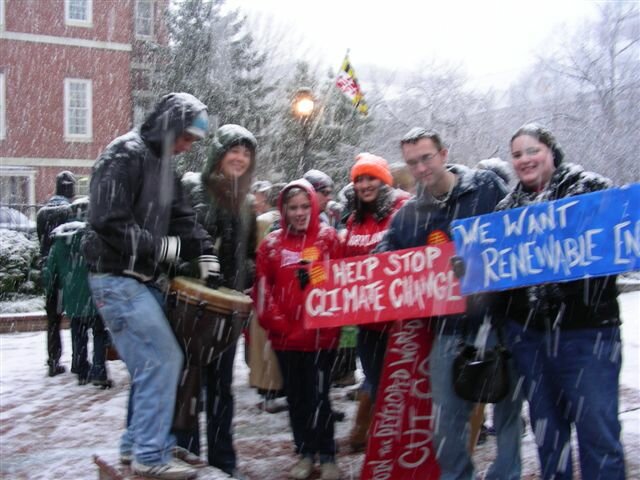Intellectual activism in defense of the American way of life.
Archive for 1/18/2008
How many lives is a billionth of a degree worth?
Jan 18th
According to GM, the new federal fuel requirements will costs four to ten thousand dollars per car, mostly to use more expensive weight savings materials. Some environmentalists might dispute the numbers or cheer anything that makes cars more expensive to own, in the hope that fewer people are able to afford driving. However, that will not be the only impact.
If the amount the average person is willing to pay for a car does not change, people will respond to higher prices in two ways: they will keep their existing cars longer and buy cheaper cars. Keeping existing cars will delay the introduction of more efficient and luxurious cars in the future. Switching to cheaper, more efficient cars will increase efficiency at the cost of both luxury and safety. More families will be forced to squeeze into Honda Civics rather than Toyota Camry’s. Money that would have been spent on safety improvements will be diverted to increasing efficient. Smaller cars are not inherently unsafe, but they are inherently less safe, and thus the cost of the new fuel efficiency standards can be measured in both dollars and human lives. The cost in human lives of traffic accidents is well known – about 42 thousand lives each year in the U.S. How many people will the warming from the unspent gasoline kill? Actually, the oil not burned in cars will even not be “saved.” More efficient cars will simply make that oil available for other uses, which may or may not be more efficient.
Just how many lives is a billionth of a degree of global warming worth? Can we look forward to a new “no blood for freezing winters” campaign?
California wants to control your thermostat
Jan 18th
The 2008 proposed building standards issued by the California Energy Commission include a requirement that new air-conditioners have a radio-controlled thermostat that cannot be overridden by the owner. This allows the state to override your settings during undefined “emergency events.” The explicit goal of this “feature” is to prevent blackouts by preventing people from lowering their thermostat’s temperature during heat waves. (Update – due to a public outcry, the standard has been made voluntary – for now.)
Some thoughts:
- The cause of environmentalism is one of the excuses being used to establish an increasingly totalitarian government in California and elsewhere.
- The public perception of “global warming” is that of a permanent state of imminent catastrophe, which, like the threat of terrorism, is likely to be used to justify a permanent state of “emergency.”
- The need for nanny-state thermometers is entirely a government creation. Environmental regulations have made it essentially illegal to build a new power plant in California for the last thirty years, and price controls have made it impossible for utilities to respond to changes in supply and demand.
- Shortages are entirely a creation of the interventionist state. Imagine Dell running ad campaigns asking the public to “stop buying so many computers!” or Starbucks asking customers to “please reduce your caffeine intake!”
- This development highlights the sad state of the American energy industry. While rapid advancement in technology allow amazing innovations such as remotely controlled thermostats, environmental regulations have made it all-but-illegal, prohibitively expensive, or legally uncertain to innovate in the energy sector, outside of a few, politically correct and subsidized technologies.
- The remote-controlled thermostats are a genuinely useful invention. However, the proper use of the technology would be simply to continually broadcast the current energy rate. The utility could then raise the rate during peak hours and let the customer decide how to automatically limit their usage. If energy prices doubled during heat waves, blackouts would be permanently eliminated. Unfortunately, in California, price controls currently mandate that politicians and government bureaucrats, not energy producers set energy prices.

 View David Veksler’s profile
View David Veksler’s profile
Talkback